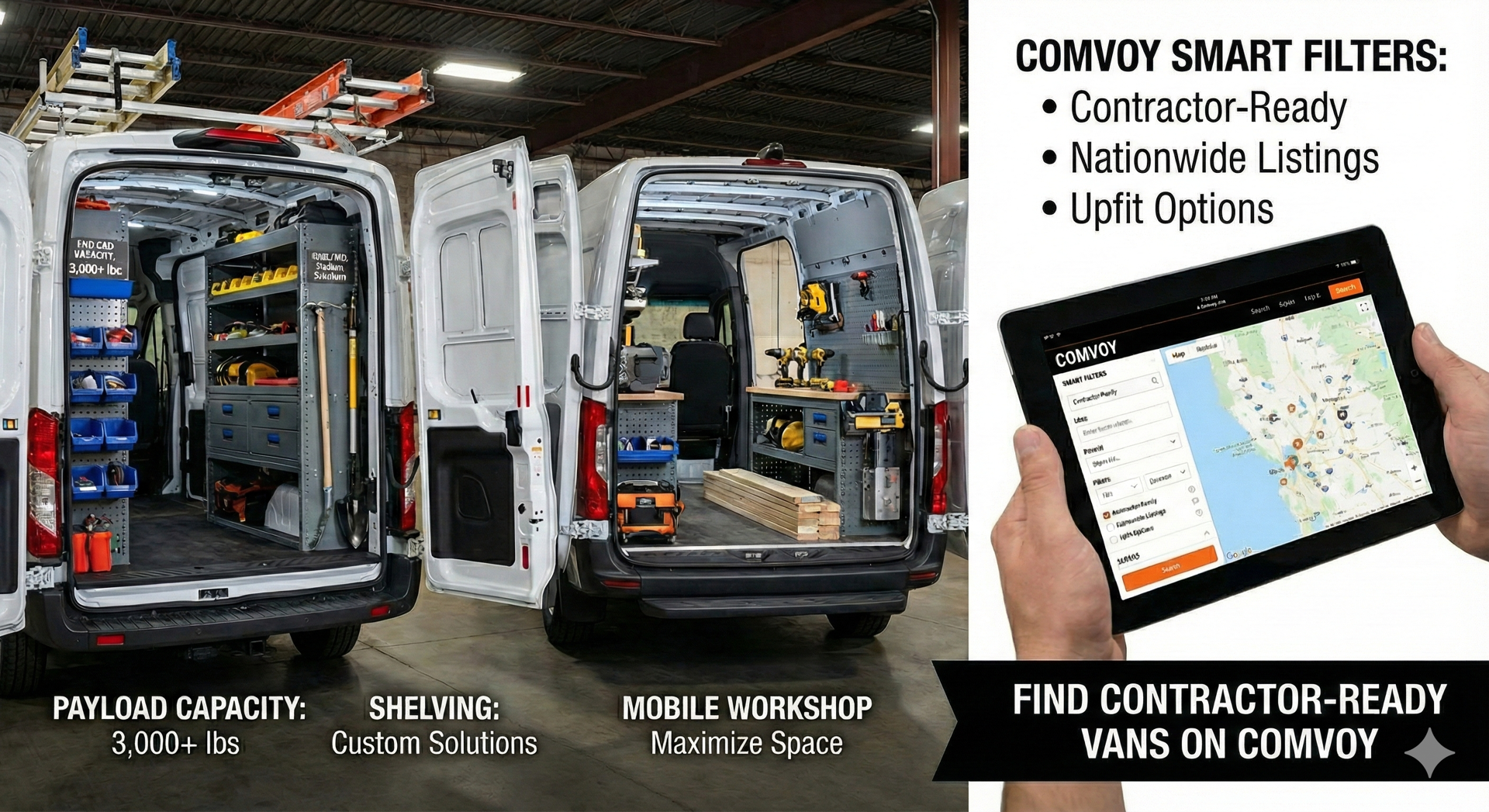What are the Current Federal EV Tax Incentives for Businesses?


What are the Current Federal EV Tax Incentives for Businesses?
The big news is that, as of January 1, 2023, a tax credit will be available to businesses to purchase new EVs and FCEVs if they have a gross vehicle weight rating (GVWR) below 14,000 pounds (lbs.)
Medium- and light-duty trucks have been "the fastest-growing fuel users and greenhouse gas producers in the United States," according to a 2019 Energy Department report.
But, with the latest Inflation Reduction Act, the United States Government is following the lead of other nations worldwide in offering increased tax incentives to help businesses replace their light, medium, and even heavy-duty vehicles.
The government hopes the tax credits from the Inflation Reduction Act will triple the purchases of EV trucks, vans, and medium-duty vehicles by 2030. And the new commercial EV tax credit the Inflation Reduction Act offers could change what your small business is willing to do regarding your next company vehicle.
What Commercial Vehicle Tax Incentives Does the Inflation Reduction Act Include?
The Inflation Reduction Act includes the following incentives for businesses:
- Up to $7,500 credit for qualified light, medium, and heavy-duty EVs
- Up to $40,000 credit for heavy-duty trucks.
- One important note is that there are no restrictions or requirements that the vehicles must include US-resourced batteries and parts like the consumer credits required in IRC 30D.
Adding to the Federal Government incentives are state incentives. For instance, California has The Hybrid and Zero Emission Truck and Bus Voucher Incentive Project (HVIP) Funding for Medium- and Heavy-Duty Zero Emission Vehicles that launched in June of 2021.
Depending on the vehicle's weight class, it includes rebates from $45,000 to $150,000. And although it's on a first-come, first-served basis, there's still over $400 million available for business, schools, and transit. So, when there's that amount of money left over in a highly restrictive and EV-popular state like California, one wonders how popular the new Inflation Reduction Act incentives will be with the rest of the country.
You'll find a complete list of states providing EV incentives here:
STATES PROVIDING COMMERCIAL EV INCENTIVES
Can Your Business Get the New Commercial EV Tax Breaks?
You wouldn't be blamed if you thought it was for everyone but you. However, the short answer is you likely can. According to the provisions, the tax breaks are available to business owners who buy an electric vehicle or electric "mobile machinery," including machinery for construction, manufacturing, processing, farming, mining, drilling, or timbering.
- Your EVs must be subject to a depreciation allowance — meaning it's for business use like your other vehicles.
- Vehicles that weigh less than 14,000 pounds qualify for up to $7,500; those that weigh more than that qualify for up to $40,000.
- The 14,000-pound demarcation line includes commercial vehicles that are Class 4 and above or largely medium- and heavy-duty trucks and buses.
The IRS provides a current list of vehicles available for the new consumer and business tax incentives. And as a reminder, unlike the consumer credits, the business tax credits are unique because they don’t have the US content, and final assembly in the US restrictions. However, the tax credits are restricted to vehicles with sales of less than 200,000.
The approved list can be found here.
Other notes, according to energy.gov, The tax credit amount is equal to the lesser of the following amounts:
- 15% of the vehicle purchase price for plug-in hybrid electric vehicles
- 30% of the vehicle purchase price for EVs and FCEVs
- The incremental cost of the vehicle compared to an equivalent internal combustion engine vehicle
- Maximum tax credits may not exceed $7,500 for qualified vehicles under 14,000 lbs. and $40,000 for vehicles above 14,000 lbs. Businesses may not combine this tax credit with the Clean Vehicle Tax Credit
So, there's no chance of getting a free vehicle as a total write-off like some have been able to do with the Tesla Model X or other vehicles over 6,000 lbs. But something is better than nothing if you plan to electrify your fleet.
How Do I Take the EV Business Vehicle Tax Deduction?
You or your tax preparer must complete IRS Form 4562 Depreciation and Amortization. Follow the instructions for Part I.
Essential Requirements and Restrictions as Stated by the IRS are:
- The vehicle must be new or "new to you," meaning that you can buy a used vehicle if it is first used during the year you take the deduction.
- The vehicle may not be used for transporting people or property for hire.
- You can't deduct more than the cost of the vehicle as a business expense.
- You must put the vehicle "into service" (use it in your business) by December 31 of the tax year. If you don't use it, you can't get the deduction, so make sure you can prove the vehicle was used in your business by the end of December in case of a tax audit.
- You cannot deduct more than your business net income for the year.
In addition, business owners can't double dip by getting a tax break on the consumer side (tax code section 30D) and the commercial end (code section 45W).
Some states have restrictions and additional limits on section 179 deductions. Check with your state's taxing authority for details.
The Inflation Reduction Act incentives may trigger you to start the move, as more states are looking to ban gas-powered and diesel vehicles by 2035.
Disclaimers:
Some states have restrictions and additional limits on section 179 deductions. Check with your state's taxing authority and advisor for details.
You should consult your own tax, legal, and accounting advisors before engaging in any transactions.
FIND YOUR NEXT COMMERCIAL VEHICLE
Specially written for COMVOY.com by:
Steve Mitchell

Steve grew up on a farm in East Texas, and his first experience with driving trucks was using the creeper gear as the driver in his great uncle Homer’s flatbed Chevy hay hauler. Even though he now lives in Southern California, he’s still filled with passion for four wheels. On sunny days, you’ll also find him playing as an endurance athlete on the bike in SoCal, but you'll know he's thinking about cars.
Published on: February 07, 2023






